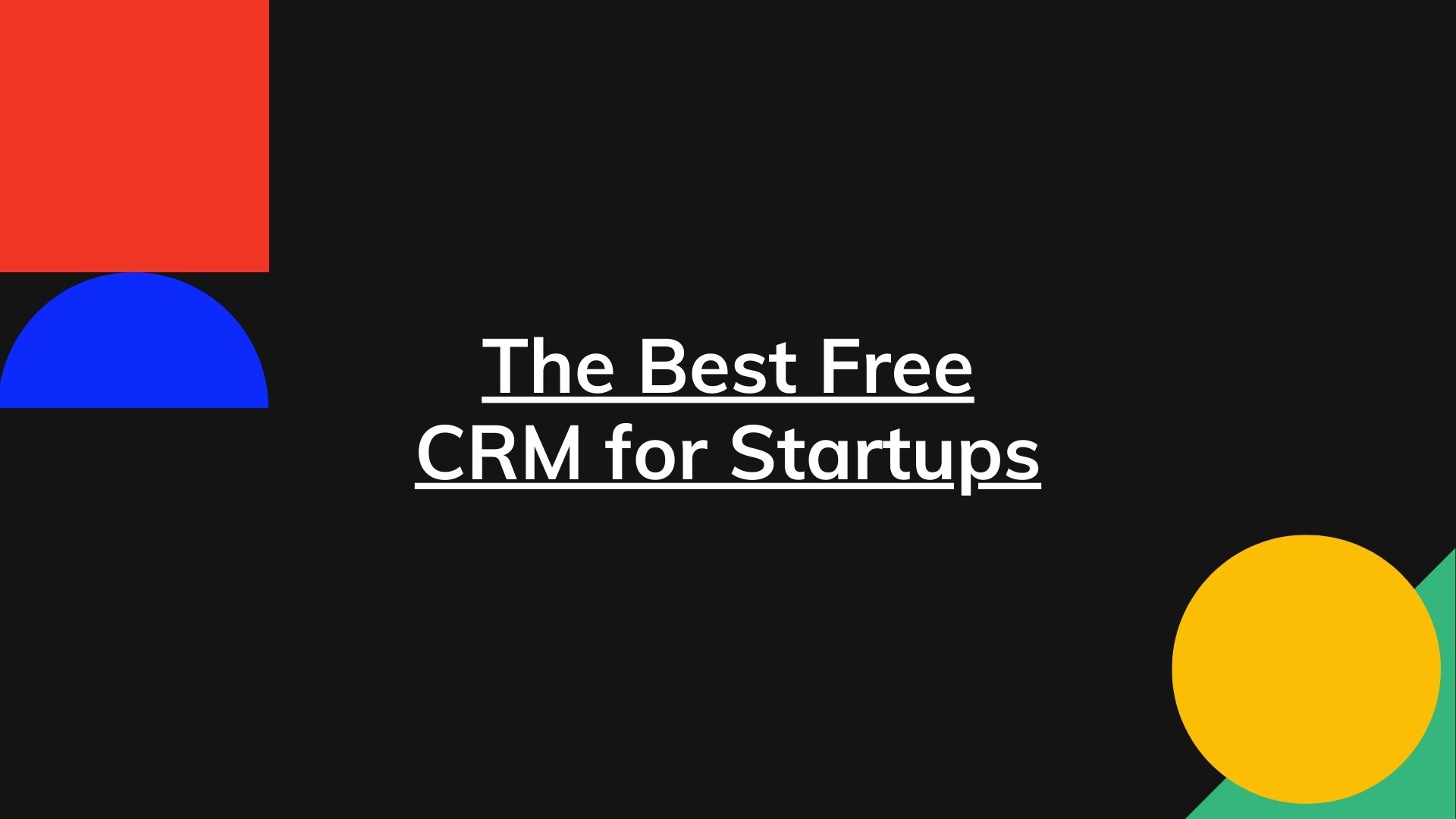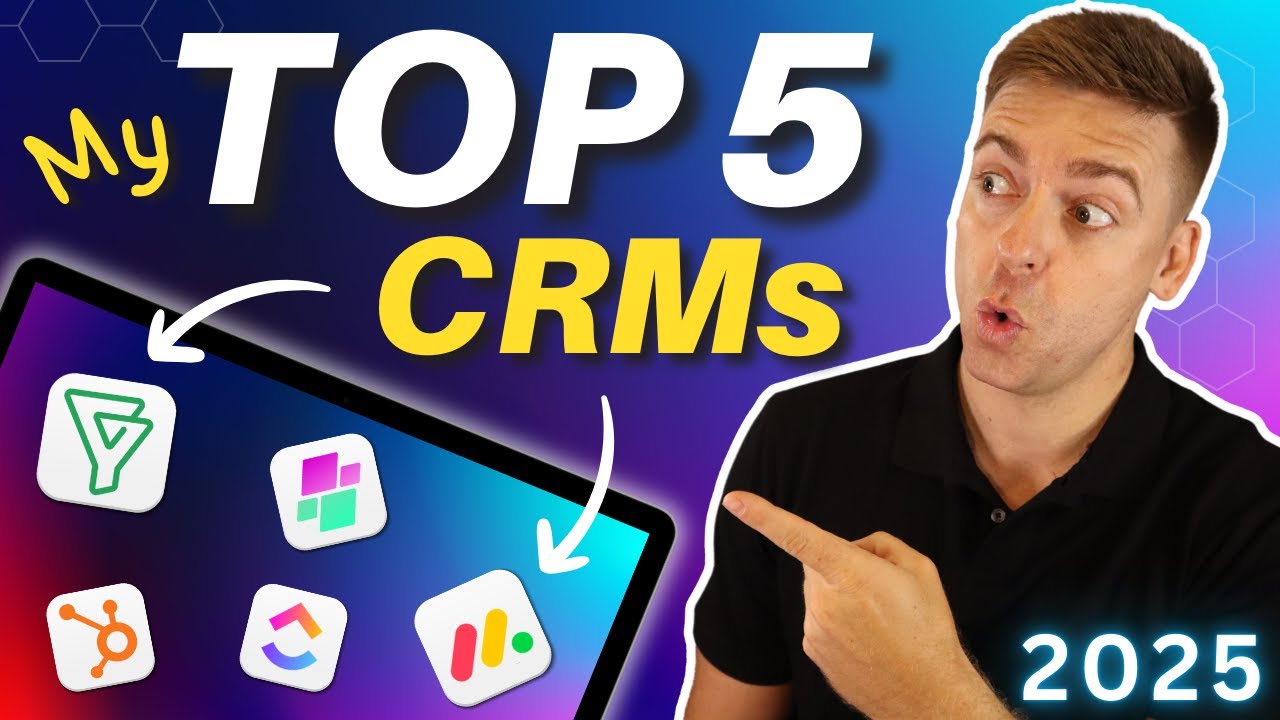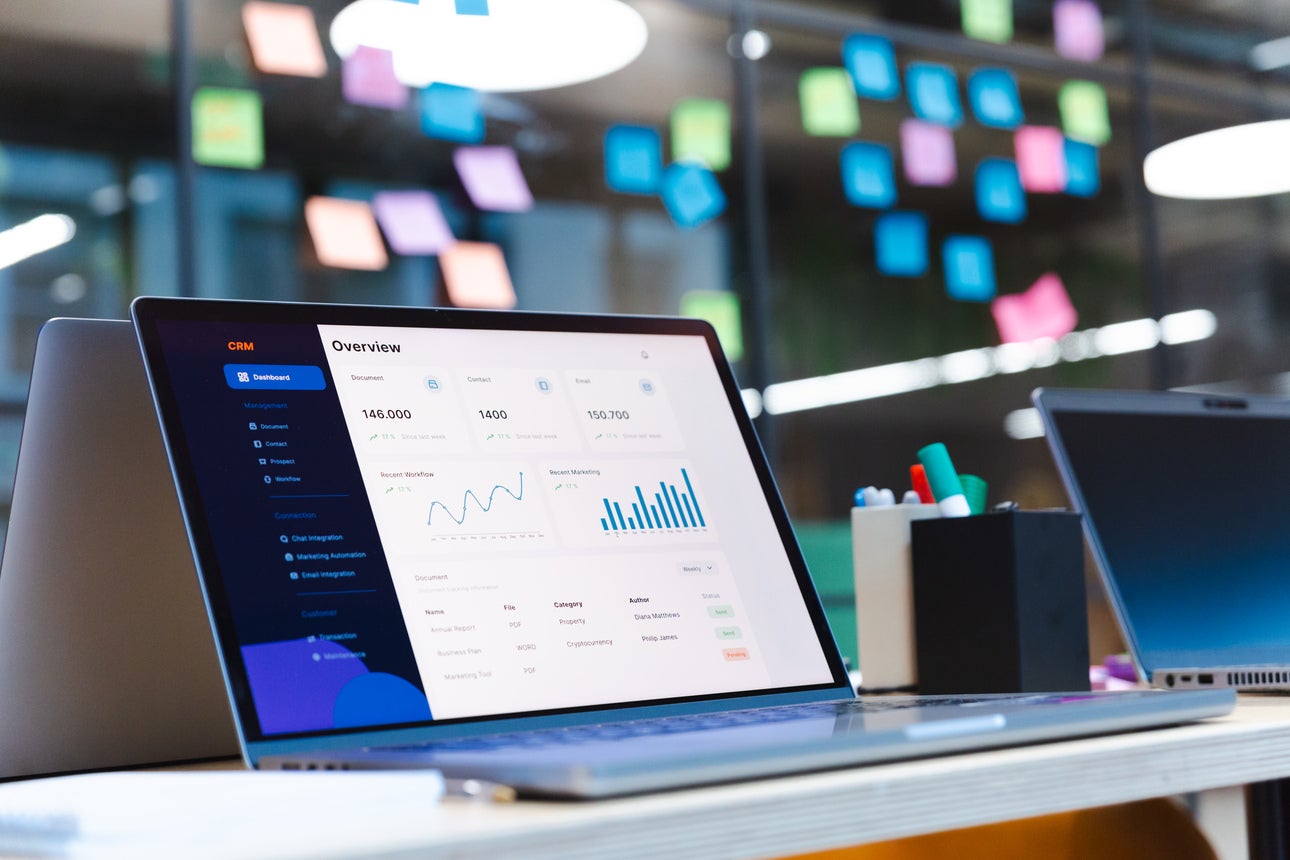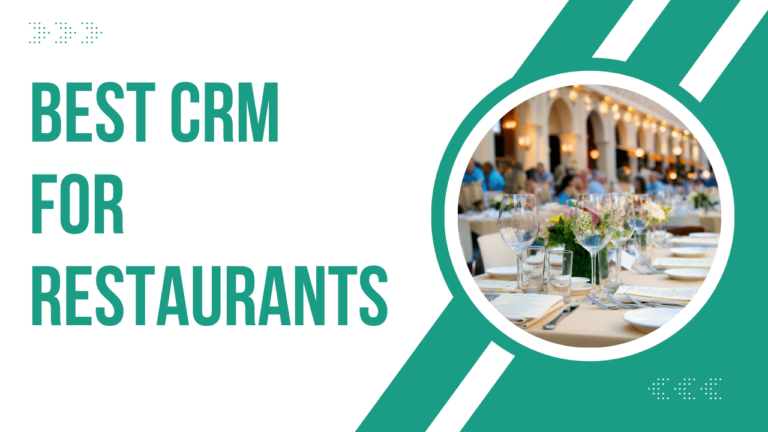Savor Success: The Best CRM Systems for Small Restaurants in 2024

Savor Success: The Best CRM Systems for Small Restaurants in 2024
Running a small restaurant is a whirlwind of activity. You’re not just serving delicious food; you’re managing staff, ordering supplies, handling finances, and, most importantly, building relationships with your customers. In today’s competitive landscape, understanding and nurturing those customer relationships is paramount to success. That’s where a Customer Relationship Management (CRM) system comes in. But with so many options available, choosing the right CRM for a small restaurant can feel overwhelming. This guide will explore the best CRM systems tailored specifically for small restaurants in 2024, helping you find the perfect tool to enhance your operations, boost customer loyalty, and ultimately, drive profitability.
Why Your Small Restaurant Needs a CRM
Before diving into the specifics, let’s clarify why a CRM is indispensable for your business. Think of it as the central nervous system of your customer interactions. It’s a digital hub where you can store, organize, and analyze all your customer-related data. Here’s how a CRM can benefit your small restaurant:
- Improved Customer Service: A CRM provides a 360-degree view of each customer, including their order history, preferences, and any past interactions. This allows your staff to provide personalized service, anticipate needs, and resolve issues quickly and efficiently.
- Enhanced Customer Loyalty: By understanding your customers better, you can create targeted marketing campaigns, offer personalized promotions, and reward loyal customers. This fosters a sense of appreciation and encourages repeat business.
- Streamlined Operations: Many CRM systems integrate with other restaurant software, such as point-of-sale (POS) systems and online ordering platforms. This integration streamlines data flow, reduces manual data entry, and minimizes errors.
- Data-Driven Decision Making: CRM systems track key metrics, such as customer spending habits, popular menu items, and the effectiveness of marketing campaigns. This data provides valuable insights that can inform your business decisions, such as menu planning, inventory management, and marketing strategies.
- Increased Revenue: By improving customer service, increasing customer loyalty, and streamlining operations, a CRM can ultimately lead to increased revenue and profitability.
Key Features to Look for in a Restaurant CRM
Not all CRM systems are created equal. When choosing a CRM for your small restaurant, consider these essential features:
- Contact Management: The ability to store and manage customer contact information, including names, addresses, phone numbers, email addresses, and any other relevant details.
- Customer Segmentation: The ability to segment customers based on various criteria, such as demographics, purchase history, and preferences. This allows you to target marketing campaigns more effectively.
- Order History Tracking: The ability to track customer order history, including what they ordered, when they ordered it, and how much they spent.
- Reservation Management: Integration with reservation systems to manage bookings, track table availability, and send confirmation emails.
- Email Marketing: The ability to create and send targeted email campaigns, such as promotional offers, birthday greetings, and newsletters.
- Loyalty Programs: The ability to create and manage loyalty programs to reward repeat customers and encourage loyalty.
- Reporting and Analytics: The ability to track key metrics, such as customer spending habits, customer retention rates, and the effectiveness of marketing campaigns.
- Integration with POS Systems: Seamless integration with your point-of-sale (POS) system to automatically capture customer data and order information.
- Mobile Accessibility: The ability to access and manage your CRM data from any device, including smartphones and tablets.
- Ease of Use: A user-friendly interface that is easy to navigate and understand, even for users with limited technical skills.
Top CRM Systems for Small Restaurants in 2024
Now, let’s explore some of the best CRM systems specifically tailored for small restaurants in 2024. We’ll consider factors like features, pricing, ease of use, and integration capabilities.
1. Toast CRM
Overview: Toast is a popular POS and restaurant management platform, and its CRM capabilities are deeply integrated within its ecosystem. This makes it a particularly strong choice for restaurants already using Toast for their POS needs.
Key Features:
- Seamless POS Integration: Automatically captures customer data from every transaction.
- Customer Profiles: Detailed customer profiles with order history, preferences, and contact information.
- Loyalty Program Management: Create and manage custom loyalty programs with points, rewards, and tiers.
- Targeted Marketing Campaigns: Send personalized emails and SMS messages based on customer segments.
- Reporting and Analytics: Comprehensive reporting on customer behavior, sales trends, and marketing campaign performance.
- Online Ordering Integration: Integrates with Toast’s online ordering platform.
Pros:
- Tight integration with Toast POS simplifies data flow and reduces errors.
- Comprehensive features for loyalty program management.
- Strong reporting and analytics capabilities.
- User-friendly interface.
Cons:
- Can be expensive, particularly for smaller restaurants.
- Best suited for restaurants already using Toast POS.
Pricing: Pricing is typically based on a monthly subscription, with costs varying based on the features and modules you select. Contact Toast for a custom quote.
2. Upserve by Lightspeed
Overview: Upserve, now part of Lightspeed, is a robust restaurant management platform that includes powerful CRM features. It’s known for its focus on data-driven insights and its ability to help restaurants optimize their operations.
Key Features:
- Customer Database: Builds a comprehensive customer database with detailed profiles.
- Order History Tracking: Tracks customer orders and preferences.
- Table Management: Helps you to manage your tables and seating arrangements.
- Advanced Reporting: Provides in-depth analytics on customer behavior, sales trends, and menu performance.
- Marketing Automation: Offers automated email marketing and targeted promotions.
- Payment Processing: Integrates with payment processing.
Pros:
- Strong reporting and analytics capabilities.
- Focus on data-driven insights to help you make informed decisions.
- Robust marketing automation features.
- Integrates with other Lightspeed products.
Cons:
- Can be expensive for small restaurants.
- Requires a learning curve to fully utilize all features.
Pricing: Upserve offers different pricing plans based on the features and number of users. Contact Lightspeed for a quote.
3. Hubspot CRM
Overview: While not specifically designed for restaurants, HubSpot CRM is a versatile and powerful CRM platform that can be adapted to meet the needs of small restaurants. Its free version is particularly attractive for budget-conscious businesses.
Key Features:
- Contact Management: Store and manage all your customer contacts in one place.
- Deal Tracking: Track potential customers and manage sales pipelines.
- Email Marketing: Create and send personalized email campaigns.
- Marketing Automation: Automate tasks and workflows to save time.
- Reporting and Analytics: Track key metrics and gain insights into your customer interactions.
- Integration: Integrates with many other apps and services, including email marketing platforms and social media tools.
Pros:
- Free version available with robust features.
- User-friendly interface.
- Highly customizable.
- Integrates with a wide range of other tools.
Cons:
- May require some customization to fully meet the specific needs of a restaurant.
- The free version has limitations on the number of contacts and emails.
Pricing: HubSpot offers a free version with limited features. Paid plans start at a monthly fee, depending on the features and the number of contacts you require.
4. Zoho CRM
Overview: Zoho CRM is another versatile and affordable CRM platform that can be a good option for small restaurants. It offers a range of features and integrations at a competitive price point.
Key Features:
- Contact Management: Manage customer contacts and track interactions.
- Sales Automation: Automate sales tasks and workflows.
- Marketing Automation: Create and send email marketing campaigns.
- Reporting and Analytics: Track key metrics and analyze your customer data.
- Integration: Integrates with various third-party apps and services.
- Mobile Apps: Access your CRM data from anywhere with mobile apps.
Pros:
- Affordable pricing plans.
- Wide range of features.
- User-friendly interface.
- Good integration capabilities.
Cons:
- May not be as specialized for restaurants as some other options.
- Requires some setup and customization.
Pricing: Zoho CRM offers a free plan with limited features. Paid plans start at a monthly fee, depending on the features and the number of users.
5. Restaurant365
Overview: Primarily a restaurant-focused accounting and operational platform, Restaurant365 includes robust CRM capabilities that can be beneficial for small restaurants looking for an all-in-one solution. It is designed to streamline operations and improve profitability.
Key Features:
- Customer Data Management: Store and manage customer data within the platform.
- Order History Tracking: Tracks customer order history integrated with accounting.
- Inventory Management: Integrated inventory management for efficient operations.
- Labor Management: Features for scheduling and labor cost management.
- Reporting and Analytics: Provides financial and operational performance insights.
- Recipe Costing: Helps in recipe costing and menu engineering.
Pros:
- Comprehensive, all-in-one solution for restaurant operations, including CRM.
- Integrates accounting, inventory, and labor management.
- Strong financial reporting capabilities.
Cons:
- Can be more complex and may have a steeper learning curve.
- May be overkill for restaurants that only need basic CRM functionality.
- Higher pricing compared to standalone CRM solutions.
Pricing: Pricing is based on a monthly subscription, with costs varying depending on the features and the number of users. Contact Restaurant365 for a custom quote.
How to Choose the Right CRM for Your Restaurant
Choosing the right CRM for your small restaurant requires careful consideration of your specific needs and goals. Here’s a step-by-step guide to help you make the right decision:
- Assess Your Needs: Determine your restaurant’s specific needs and goals. What are you hoping to achieve with a CRM? Do you need to improve customer service, increase customer loyalty, streamline operations, or gain data-driven insights?
- Define Your Budget: Set a realistic budget for your CRM system. Consider the monthly subscription fees, implementation costs, and any ongoing maintenance expenses.
- Research Your Options: Research the different CRM systems available, considering their features, pricing, and integration capabilities. Read reviews from other restaurant owners to get insights into their experiences.
- Prioritize Key Features: Identify the features that are most important to your restaurant. Do you need robust contact management, advanced marketing automation, or seamless POS integration?
- Consider Integration: Determine which integrations are essential for your restaurant. Does the CRM need to integrate with your POS system, online ordering platform, or other software?
- Evaluate Ease of Use: Choose a CRM that has a user-friendly interface and is easy for your staff to learn and use.
- Request Demos and Free Trials: Request demos or free trials of the CRM systems that you are considering. This will allow you to test the features and see how they fit your restaurant’s needs.
- Implement and Train: Once you’ve chosen a CRM, implement it and train your staff on how to use it effectively.
- Monitor and Optimize: Continuously monitor your CRM usage and performance. Make adjustments as needed to optimize your results.
Tips for Implementing a CRM in Your Restaurant
Once you’ve selected your CRM, successful implementation is crucial. Here are some tips to ensure a smooth transition:
- Plan Ahead: Develop a detailed implementation plan, including timelines, tasks, and responsibilities.
- Clean Your Data: Before importing your customer data, clean it to ensure accuracy and consistency.
- Train Your Staff: Provide comprehensive training to your staff on how to use the CRM system.
- Start Small: Begin with a phased implementation, focusing on a few key features at first.
- Get Feedback: Gather feedback from your staff and make adjustments as needed.
- Integrate Gradually: Integrate the CRM with other systems gradually to minimize disruption.
- Monitor and Measure Results: Track key metrics to measure the impact of the CRM on your business.
Final Thoughts: Savor the Benefits
Choosing the right CRM is an investment that can pay off handsomely for your small restaurant. By implementing a CRM, you can build stronger customer relationships, streamline operations, and ultimately, increase your profitability. Take the time to research your options, assess your needs, and choose the CRM that best fits your business. With the right tools in place, you can truly savor the success of your restaurant.
As the restaurant industry evolves, staying ahead of the curve is essential. Embracing technology like CRM systems is no longer a luxury but a necessity. By focusing on personalized service, understanding your customers, and making data-driven decisions, you can create a thriving restaurant that keeps customers coming back for more.





